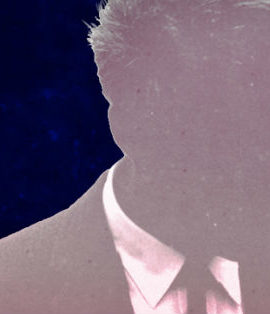TV Reviews

It’s been nearly five decades since New York Senator Robert F. Kennedy, brother of the late President John F. Kennedy, was murdered on the campaign trail. At the time, Kennedy was running for the Democratic presidential nomination.
In her new four-part documentary series Bobby Kennedy for President, director Dawn Porter presents a telling and heartbreaking look at the political career of RFK.
The first episode focuses on Kennedy’s early political work, focusing attention on his work against communists and his role as campaign manager and then Attorney General for his brother. Porter doesn’t ignore the most controversial aspects of Robert Kennedy’s tenure though. From his work with Senator Joe McCarthy to his selection as his brother’s Attorney General to his wiretapping of Martin Luther King Jr., the show seldom shies away from presenting RFK’s flaws.
It’s the second episode though that really stands out in presenting a new side of RFK. This hour puts a spotlight on the politician coming into his own and running for the Senate. It’s here we recognize Kennedy’s early weaknesses as a candidate (his flimsy handshake, his lack of passion). Some of the interview subjects — who later worked closely with Kennedy — detail their earliest encounters with him, which oftentimes left them feeling underwhelmed.
Kennedy wasn’t born a politician. In his early political life, he took a back seat to JFK. And when given the chance to step up, he was insecure. It’s this hour of the program that shows how far he evolved and how he became passionate about the issues that would later define his career.
The third hour of the program focuses on the events of 1968 and Kennedy’s presidential run but it also sheds light on all of the big changes our country went through in that year. An anti-war candidate who broke through with voters. A sitting president who opted not to run for re-election. The assassination of civil rights icon Martin Luther King Jr.. These events really changed Robert Kennedy.
The fourth episode focuses on the period after the death of Robert Kennedy and ultimately, it speaks to his profound legacy.
In presenting RFK’s life and legacy, Porter oftentimes interviews people who worked closely with the Senator. However, some of her most enlightening subjects are people who didn’t know him well but whose lives were forever changed by him. In the fourth hour, for instance, Porter brings renewed attention to Juan Romero, the busboy who held up Kennedy’s head after he was shot, and Munir Sirhan, the brother of Kennedy’s assassin.
These are individuals who haven’t spoken out often and it says a lot about Porter’s compassionate style that both feel free to talk about this painful period in their lives.
Another powerful interview subject is John Lewis, the civil rights leader who became a Georgia Congressman. Lewis, who worked with Martin Luther King Jr. and Robert Kennedy, brings a unique perspective to the story. The Congressman stood up with both of these iconic political figures and saw their lives cut short. In one of the show’s most telling moments, he nearly breaks down thinking about what was lost in that horrific period in American history.
Whatever your perspective of the Kennedy family is, Bobby Kennedy for President manages to capture its subject matter in new and revealing ways. Even for Kennedy critics, this program reminds us of this turbulent period in American history and how our nation was changed because of it.
Review by: John Hanlon









